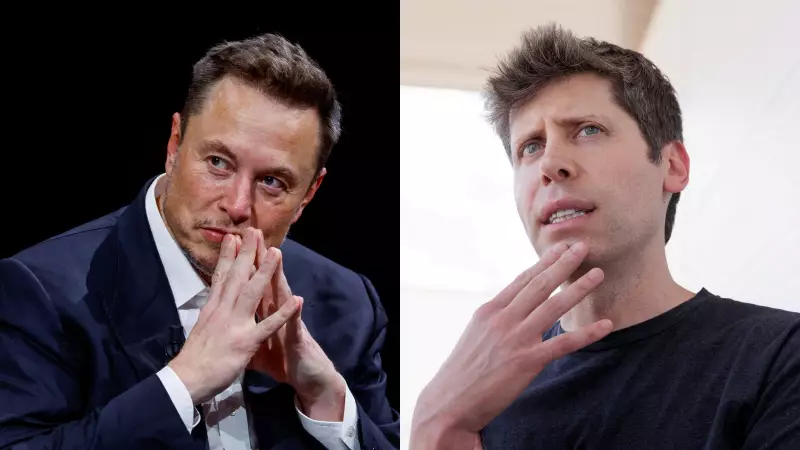
The ongoing feud between tech titans Sam Altman and Elon Musk has taken a dramatic new turn, with the OpenAI CEO firing back at Musk's allegations that the AI research company "stole" its non-profit status.
The Explosive Email Exchange
In a stunning revelation, Altman shared portions of email correspondence that shed new light on the real reasons behind Musk's departure from OpenAI in 2018. The emails reveal that Musk pushed for a very different future for the organization—one that would have given him ultimate control.
"You wanted total control of Tesla or you threatened to leave," Altman stated, drawing parallels between Musk's approach to Tesla and his demands regarding OpenAI's direction.
Musk's Merger Proposal
The most shocking revelation comes from Altman's description of Musk's proposed solution: merging OpenAI with Tesla to create what Musk called a "cash cow" that could compete directly with Google. According to Altman, this fundamental disagreement over the organization's structure and mission led to the eventual split.
"We couldn't agree on creating a for-profit entity back then," Altman explained, emphasizing that the current structure was developed years after Musk's departure and with completely different leadership involved.
The Control Controversy
At the heart of the conflict lies a fundamental disagreement about control and direction. Musk reportedly wanted majority equity, initial board control, and to become the CEO—demands that other founders, including Altman, found unacceptable for an organization dedicated to developing AI safely and beneficially for humanity.
Altman's response paints a picture of Musk as someone who wanted to run the show entirely or not participate at all. "When it became clear that none of us were going to get total control, Elon decided to leave," Altman revealed.
The Aftermath and Current Status
Since Musk's departure, OpenAI has evolved significantly, developing groundbreaking AI systems like ChatGPT while maintaining its commitment to its founding principles. The organization's unique structure, which includes both non-profit and for-profit arms, has enabled it to attract the massive investment required to compete in the AI race while keeping its original mission intact.
This public exchange represents one of the most significant confrontations between two of the most influential figures in artificial intelligence development today. As AI continues to transform our world, the philosophical differences between these visionaries highlight the critical debates shaping our technological future.
The tech community is watching closely as this drama unfolds, recognizing that the outcome of such disagreements could ultimately determine who controls the most powerful technology humanity has ever created.






